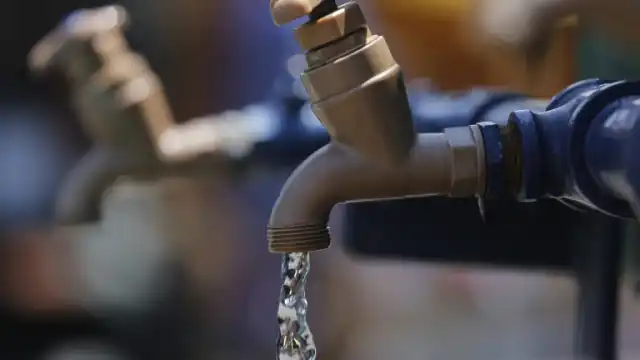
PLEVEN, BULGARIA – The cities of Pleven and Lovech will implement new water regimes due to a reduced flow rate from the “Cherni Osam” water supply group.
This measure, reported by bTV, is crucial to manage the limited water supply effectively amid ongoing shortages. In Pleven and its surrounding areas, water will only be available at night, from 11 p.m. to 5 a.m.
This schedule is designed to allow for water accumulation during off-peak hours, ensuring a steady supply for all users throughout the day. However, officials warn that if the situation worsens, there may be additional restrictions from 1 p.m. to 4 p.m.
Lovech will see water turned off from 10 p.m. to 6 a.m. This restriction applies to the entire city, with the exception of the “Goznica” and “Prodimchets” districts, which are supplied by a different water source. The new regime will also affect parts of the villages of Radyuvene and Brestovo.
In response to the reduced water supply, Lovech’s mayor has ordered a ban on using drinking water for non-essential purposes, including watering plants, washing streets, cars, and terraces, as well as filling swimming pools.
This ban is intended to conserve the available water for critical needs and ensure that all residents have access to a sufficient supply for drinking, cooking, and hygiene.
The water regime comes as a proactive step to mitigate the impact of the reduced flow rate from the “Cherni Osam” water supply group. Authorities are closely monitoring the situation and will adjust the restrictions as needed based on water levels and consumption patterns.
Additionally, Teteven has already implemented a night-time water regime starting August 12. This measure is part of a broader effort across the region to address the ongoing water shortages and ensure sustainable water management practices are in place.
Residents in the affected areas are urged to comply with the new water usage restrictions and to be mindful of their water consumption.
The local governments are working to provide accurate and timely information about the water regime and any potential changes to the schedule.
Water authorities are also exploring long-term solutions to address the underlying causes of the water shortages.
These include infrastructure improvements, better management of existing water resources, and the development of new water sources to enhance the reliability of the supply system.
In the meantime, citizens are encouraged to take individual actions to conserve water, such as fixing leaks, using water-efficient fixtures, and reducing water waste in daily activities.
Community awareness and cooperation are essential to overcoming the current challenges and ensuring a stable water supply for everyone.
The situation underscores the importance of sustainable water management and the need for coordinated efforts between local governments, water authorities, and residents.
As Pleven, Lovech, and Teteven navigate these water restrictions, the focus remains on maintaining public health and safety while working towards long-term solutions to secure a resilient water supply for the future.
